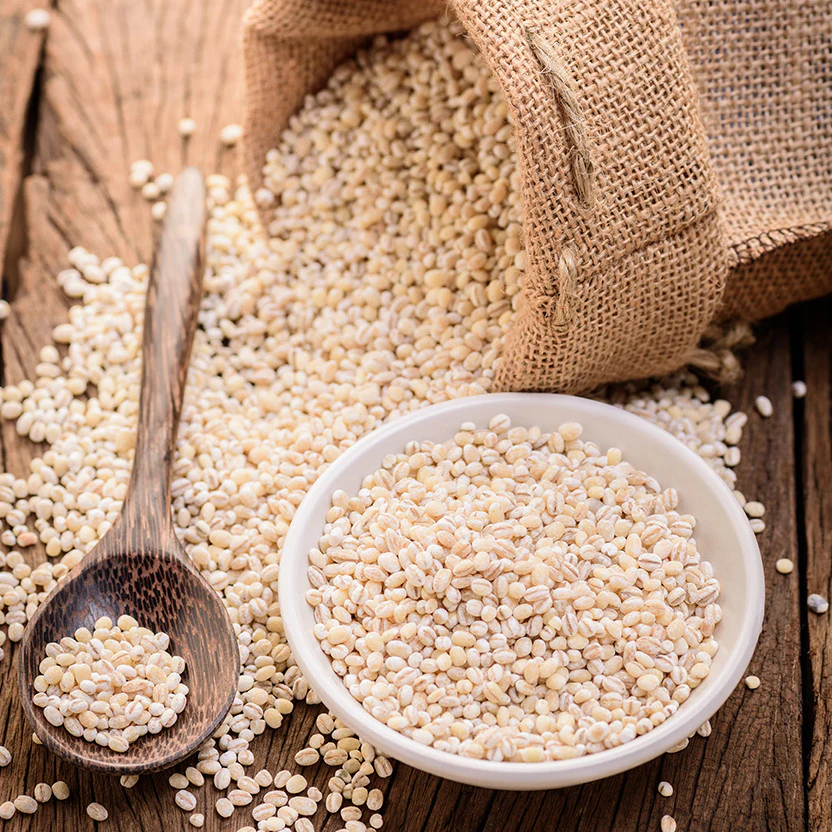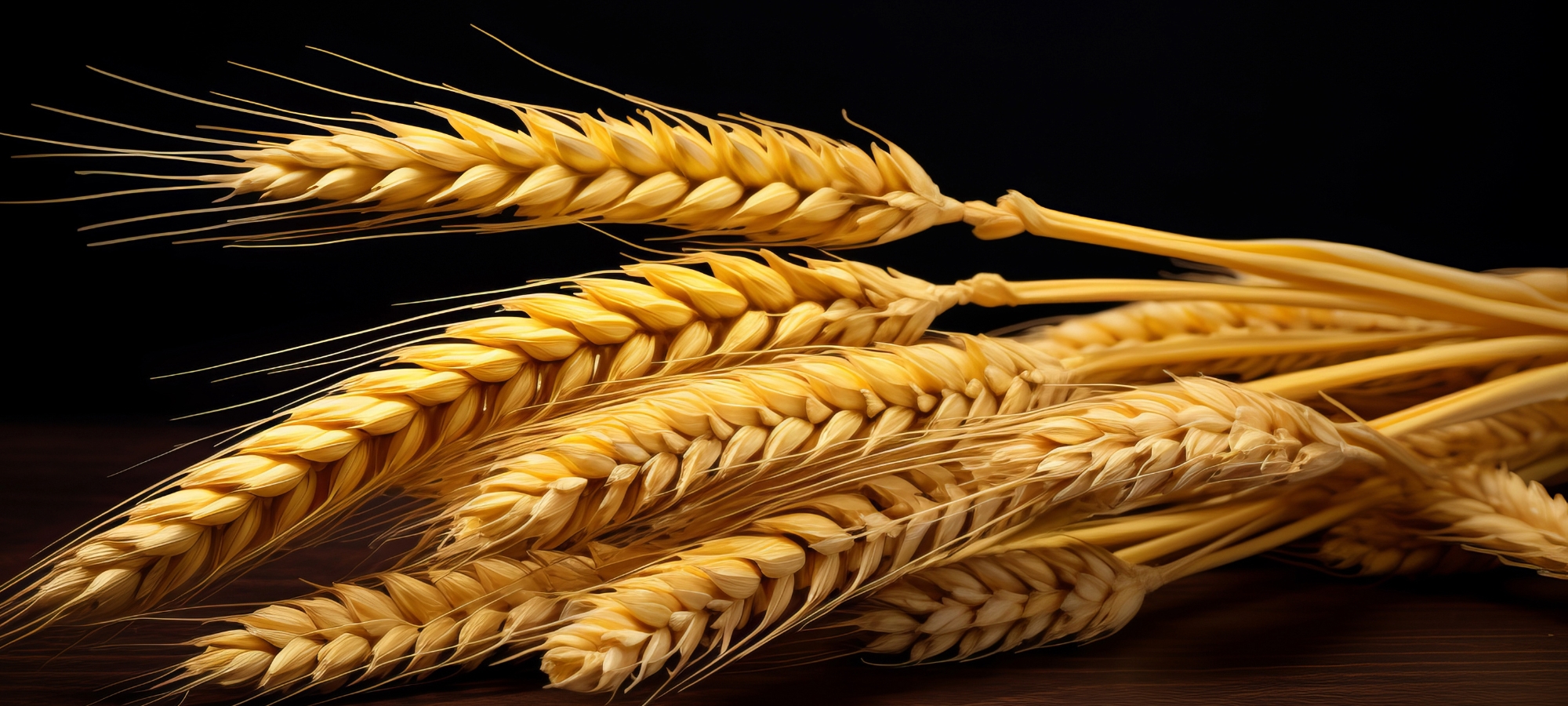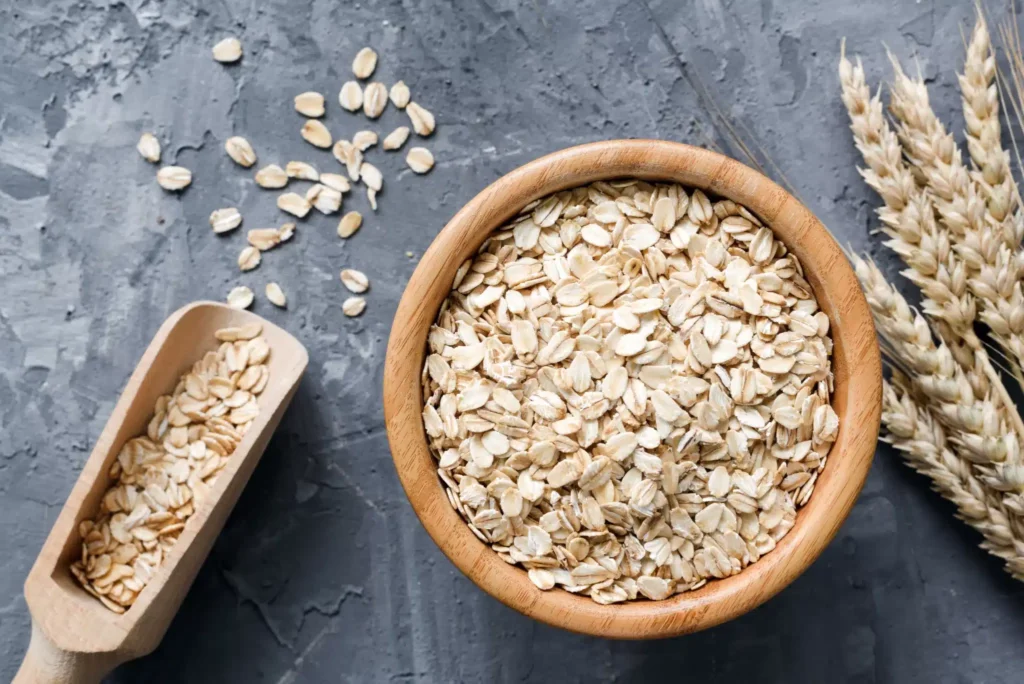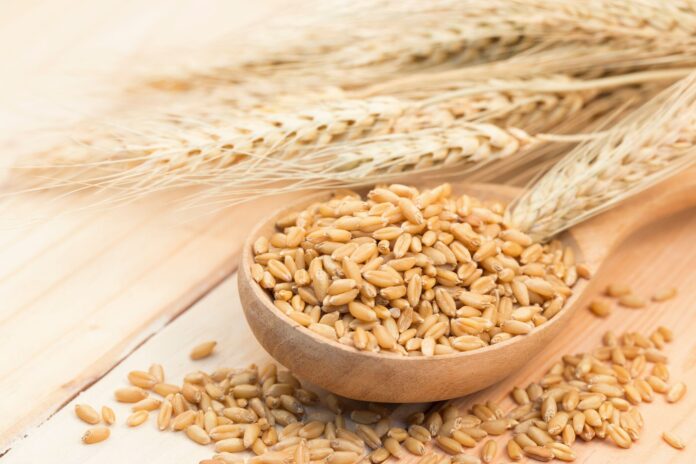
INTRODUCTION
Urdu name: Joo (جو)
Barley is a cereal grain that belongs to the grass family and is one of the oldest cultivated grains in the world. It is primarily grown for its seeds, which are used as food for humans and livestock, as well as in brewing and distilling. Barley is known for its high nutritional value, including dietary fiber, vitamins, and minerals. It comes in several varieties, with the two main types being hulled barley (less processed and more nutritious) and pearl barley (more processed and with a softer texture).
Forms
Barley is available in various forms for different uses. Here are the common forms:

- Whole Barley: Unprocessed barley grains, often used in salads, soups, and side dishes.
- Hulled Barley: Barley with the outer hull removed, retaining most of its nutrients, suitable for cooking.
- Pearl Barley: Polished and processed barley with the bran removed, commonly used in soups and stews.
- Barley Flour: Finely ground barley, used for baking or as a thickener in recipes.
- Barley Oats: Coarsely ground barley, often used as a breakfast cereal or in savory dishes.
- Barley Malt: Germinated barley grains that are dried and processed, primarily used in brewing and baking.
- Barley Tea: A beverage made from roasted barley, popular in some cultures for its nutty flavor and health benefits.
- Barley Extract: A concentrated form used in supplements or as a flavoring in foods and beverages.
- Barley Nishasta: Dipped in water for 3 days, then seperated from water and filtered after griending, and then dried.
Medicinal Properties
Barley has many medicinal properties that benefit health. It can reduce inflammation, which helps with conditions like arthritis. The antioxidants in barley protect the body from damage and lower the risk of chronic diseases. Barley also helps lower bad cholesterol and supports heart health. It improves insulin sensitivity, which is good for blood sugar control, making it helpful for people with diabetes. The fiber in barley aids digestion and prevents constipation. Additionally, barley supports liver health and helps with detoxification. Its high fiber content keeps you feeling full, which can help with weight management. Overall, barley is a great addition to a healthy diet.
Uses

Barley has many uses in cooking and health. It is often used as a grain in soups, stews, and salads, adding a nutty flavor and texture. People also use barley flour for baking bread, pancakes, and other foods. Barley can be made into barley tea, a popular drink in some cultures, known for its pleasant taste and health benefits. In addition to food, barley is used in brewing beer and making malt for various products. Its nutritional benefits make it a great addition to a healthy diet, helping with digestion and providing essential nutrients. Overall, barley is versatile and useful in many dishes and beverages.
Health Benefits
Barley offers several health benefits due to its rich nutritional profile. Here are some key benefits:
Rich in Many Beneficial Nutrients
Whole grain barley contains a range of vitamins, minerals and other beneficial plant
compounds. Soaking or sprouting your barley can improve absorption of these
nutrients.
Help You Lose Weight
Barley contains soluble fiber, which reduces hunger and enhances feelings of fullness.
It may even promote weight loss.

Improves Digestion
Barley’s high fiber content helps food move through your gut and promotes a good balance
of gut bacteria, both of which play important roles in digestion.
Risk of Gallbladder Surgery
The type of insoluble fiber found in barley may prevent the formation of
gallstones, helping your gallbladder function normally and reducing your risk
of surgery.
Heart Health
Regular consumption of barley may help lower cholesterol levels, reduce blood pressure, and improve overall cardiovascular health.
Bone Health
The minerals in barley, including calcium and phosphorus, contribute to bone strength and health.
Skin Health
The vitamins and minerals in barley can promote healthy skin and may help in the treatment of skin conditions.
Antioxidant Properties
Barley contains antioxidants, such as phenolic acids, which help combat oxidative stress and may reduce the risk of chronic diseases.
Side Effects

Barley is generally safe for most people, but it can have some side effects, especially if consumed in large amounts. Here are the main side effects.
- Digestive Issues
- Allergic Reactions
- Gluten Sensitivity
- Interactions with Medications
- Weight Gain




